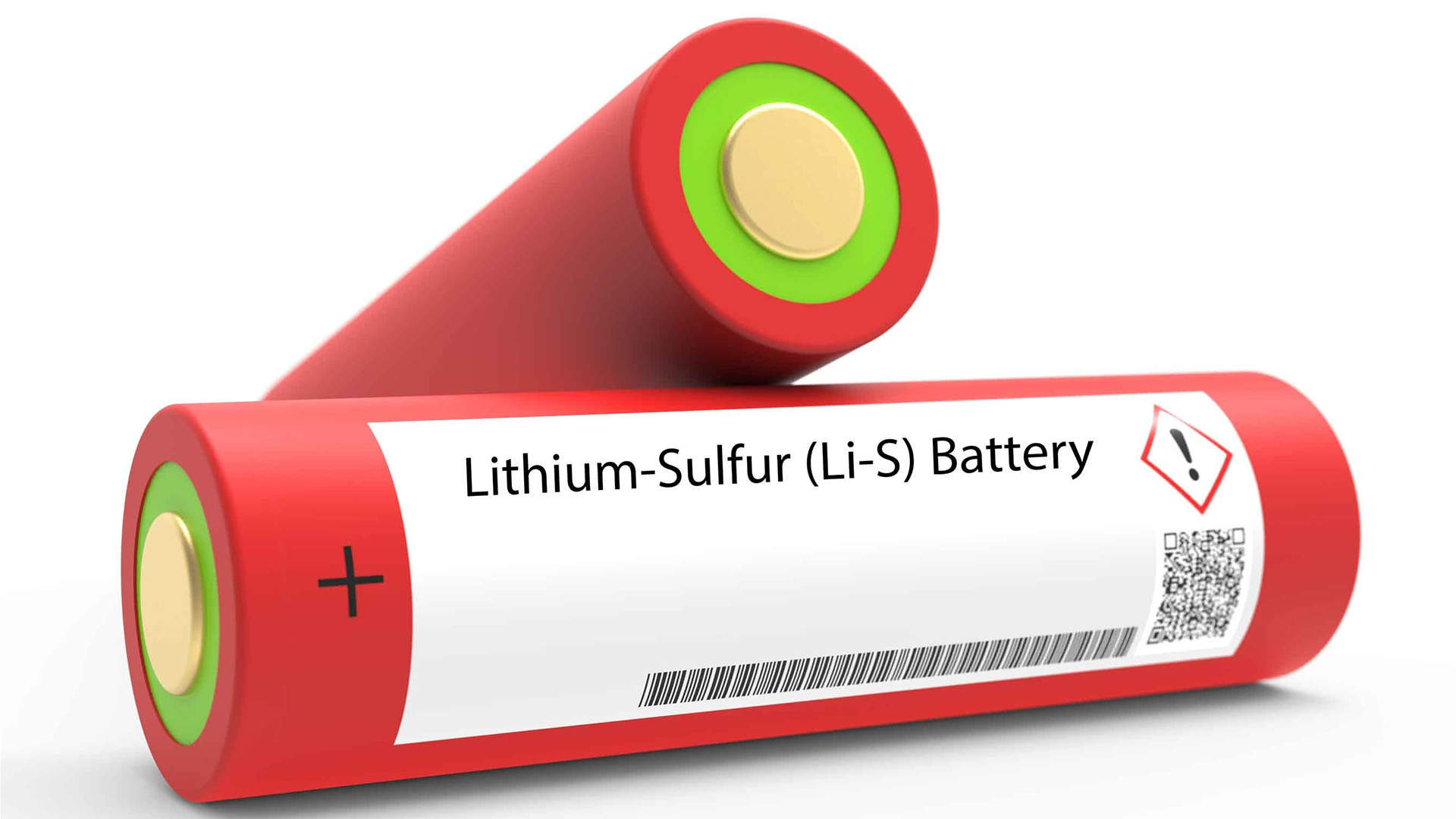Nick Smailes, Commercialisation Director at the Faraday Institution, explores the advantages and challenges to the commercialisation of lithium-sulfur batteries, and outlines the journey of battery startup OXLiD in transitioning the technology from lab to market.
In the dynamic realm of energy storage, lithium-sulfur batteries have emerged as a beacon of innovation, promising higher energy density and safety enhancements compared to their widely adopted lithium-ion counterparts.
However, despite the advantages of the technology, difficulties remain in commercialising lithium-sulfur batteries.
OXLiD, a startup leading the charge in lithium-sulfur battery development, has made a number of strategic manoeuvres to transition the technology from the lab to the market.
With help from The Faraday Institution, OXLiD’s journey, shaped by collaboration, strategic funding, and mentorship, exemplifies the potential for startups to thrive and innovate within complex landscapes.
Acquired by AIM listed battery innovator Gelion in November 2023, OXLiD’s role in the lithium-sulfur battery industry is far from over, with the acquisition helping to retain a significant lithium-sulfur battery IP portfolio in the UK – important for electrification.
Advantages of lithium-sulfur batteries
One of the primary advantages of lithium-sulfur batteries is their higher energy density compared to traditional lithium-ion batteries. This allows for the packing of more energy into a lighter battery, making them particularly attractive for applications where weight is a critical factor, such as aerospace and automotive industries.
Moreover, lithium-sulfur batteries are theorised to be safer than their lithium-ion counterparts, offering enhanced safety features during charge and discharge cycles. This, coupled with the potential cost advantage due to the abundance of sulfur, positions lithium-sulfur batteries as a compelling alternative in various sectors.
Challenges with lithium-sulfur batteries
Despite their potential, lithium-sulfur batteries face notable challenges. The chemical properties of sulfur cause the battery to undergo phase changes during charge and discharge, resulting in a distinct voltage profile compared to lithium-ion batteries.
The complex chemistry involved necessitates extensive research and development efforts to optimise performance and address concerns about the life cycle of these batteries.

The dominance of lithium-ion technology in recent years has attracted substantial investment, making it challenging for alternative technologies like lithium-sulfur to compete.
Nevertheless, the performance advantages, safety features, and potential cost-effectiveness of lithium-sulfur batteries make them a compelling area for continued exploration.
Translating the technology from lab to market
Despite the clear promise of the technology, the major issue that battery startups face is transitioning the technology from the lab to market.
Expediting this process is the Faraday Institution, enabling the UK’s promising battery startups to navigate the often-arduous route to commercialisation.
A shining success story of the UK’s thriving battery development ecosystem is Australian company Gelion’s recent acquisition of battery startup OXLiD.
The move marks a significant milestone in OXLiD technology’s path to commercialisation, a journey that has been years in the making.
OXLiD’s journey in the battery industry
The start: LiSTAR’s work with OXIS Energy
Long before battery technology developer OXLiD was created, OXIS Energy, a UK-based developer and producer of lithium-sulfur cells, completed extensive work on lithium-sulfur, having over 200 patents. In 2019, the company was selected as an industry partner at the inception of Faraday’s lithium-sulfur programme, LiSTAR.
However, shortly after this partnership was set up, OXIS Energy went into administration in 2021, halting the collaboration. The patents and labs were then acquired by Johnson Matthey, who sold the lithium-sulfur patent portfolio to Gelion in March 2023.
The development of OXLiD
In a remarkable tale of resilience and ingenuity, in 2022, OXLiD, a startup led by former OXIS Energy personnel, emerged from the remnants of challenges faced by its predecessor. At the helm of this resurgence was Adrien Amigues, the Head of IP Strategy at OXIS, whose instrumental role in forming OXLiD showcased a commitment to pushing the boundaries of battery technology.
The team aimed to develop lithium-sulfur batteries – helping to make a significant stride in advancing energy storage solutions.
The Faraday Institution assisted in this endeavour to commercialise the battery technology, first setting up bi-weekly calls with the company which continued throughout 2022 and 2023.
OXLiD awarded a Faraday Institution Sprint
OXLiD’s journey gained momentum when they partnered with UCL in March 2022 and successfully applied for a Sprint from the Faraday Institution, winning the opportunity to accelerate their technology.
The Sprint helped to define a technology roadmap and develop intellectual property for the commercialisation of lithium-sulfur batteries, allowing the team to identify the right materials to deliver high energy densities.
With strategic introductions to investors from Faraday’s commercialisation team, including support from Oxford Science Enterprises and Electric Revenue Ventures, OXLiD not only secured financial backing but also fortified its position in the competitive landscape.
Faraday Battery Challenge award and TDAP participation
Bolstered by external support, OXLiD navigated its trajectory with determination and independence. Their strategic move involved applying for a Faraday Battery Challenge collaborative R&D project, which was announced in in January 2023. Here, they clinched a substantial grant of approximately £800,000 via the award of an Innovate UK Faraday Battery Challenge Round 5 project.
Collaborating with Innovate UK, OXLiD initiated contractual processes and engaged with laboratories in Nottingham, with LiSTAR playing an integral role in these collaborative efforts.
Further amplifying their strategic moves, OXLiD sought participation in the TDAP initiative – a venture led by the Advanced Propulsion Centre. This programme proved invaluable for OXLiD, offering insights into alternative pathways to market and facilitating informed decisions on prioritisation. The collaboration with the Advanced Propulsion Centre not only opened doors to new opportunities but also provided OXLiD with invaluable visibility and expert guidance on market engagement.
Gelion’s acquisition of OXLiD
In a pivotal move on November 30, 2023, Gelion successfully acquired OXLiD for £4.2m, a transaction that reunites the patents and intellectual property (IP) with some of the original OXIS team – now at OXLiD. As a listed entity on the AIM market, Gelion is poised to anchor a significant portion of its lithium-sulfur development in the United Kingdom.
While Gelion is on the brink of announcing the extent of its lithium-sulfur activities in the UK, the emphasis on R&D in the UK is evident in its collaboration with LiSTAR. The importance of this relationship lies in the need to navigate through Technology Readiness Levels (TRL) two, three, and four, showcasing Gelion’s commitment to advancing the technology from the conceptual stage to a more mature and commercially viable state.
Notably, Gelion maintains a robust presence for both its commercial and technical teams within the UK.

Despite OXIS Energy’s collapse, the UK retains a promising capability for lithium-sulfur innovation. In a unique position globally, the country stands out as one of the leading centres of research in this field. The intellectual property remains intact and continues to be utilised domestically, leveraging the existing talent pool.
Faraday: Helping to navigate the path to commercialisation
The utilisation of the Faraday Battery Challenge and the APC programme propelled OXLiD’s technology through various stages, yielding commendable results. A key catalyst in this success story was the early and continued involvement of Faraday Institution, offering mentorship throughout the intricate innovation landscape.
In a field inundated with interventions, having a mentor with a profound understanding of the landscape proved to be an invaluable asset for OXLiD.
As they continue to advance their lithium-sulfur battery technology, OXLiD stands as a testament to the power of resilience, strategic partnerships, and a forward-thinking approach in the pursuit of groundbreaking advancements in energy storage.









